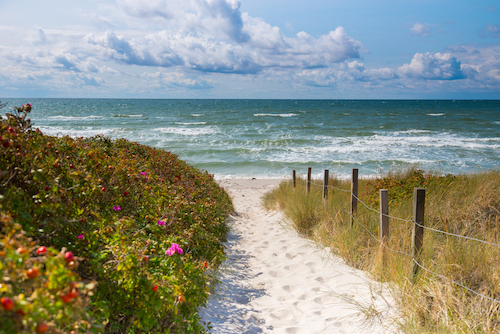The cost of healthcare in Denmark will depend on a number of factors, namely whether you as an expat:
• are signed up with the national insurance scheme
• have private health insurance
• have a combination of national and top-up private insurance to cover procedures (such as dental and optical care) which do not fall under the national scheme
• do not have insurance at all and are intending to pay out-of-pocket for any treatment that you receive.
We will look at each of these options in turn, and undertake some comparisons.
State health insurance costs in Denmark
If you are an expat who is working in Denmark, then you will be paying contributions into the national health insurance system via deductions from your salary. Both you and your employer must pay national insurance; the scheme is mandatory. The amount that will be deducted from your taxes will depend on your income and depends also on the territory that you are resident in. On average, employer contributions are around €2,000 per full-time employee, and your own contribution will usually be about 8% of your gross salary.Everyone who pays into the system is eligible for state healthcare. However, if you are not registered and are from outside the EU, you will be able to access emergency care but will need private insurance to cover routine medical treatment.
What is covered by the state health insurance system?
Once you are registered and have your yellow card (Sundhedskort), you will be able to access the full range of services that are available under the national healthcare scheme:
• visits to your doctor
• hospital stays
• part of your medication
• basic dental care
• some alternative or complementary therapies
• some physiotherapy
• some psychiatric care
• some chiropractic care
If you do not have any form of insurance, you will still be entitled to free hospital treatment in the case of an emergency, although you may be expected to pay any costs covering further treatment.
Dental treatment in Denmark operates on a co-pay system, so part of any dental treatment will be free. Charges will be deducted at the time, not via a reimbursement system. Dental treatment is free for children under the age of 18.

If you wish, you can also apply to the national mutual insurance company Danmark (Sygeforsikringen danmark) – a sort of halfway house between the national scheme and the private sector which can get you reimbursement for dental treatments (and some eyecare, such as the cost of your glasses) which aren’t covered under the national health scheme.
How much does treatment cost in the public system?
If you have your yellow card, then treatment will be free at the point of delivery.
If you are planning on visiting Greenland, which is an autonomous Danish territory, there is no private health insurance available but all treatment is free. Greenland took over healthcare from the Danish government in the early 1990s and it is virtually all publically funded, with the exception of some dental treatment and other outlying treatments, such as for drug addiction.
In the Faroes, also a Danish territory, there is national health insurance. Here all treatment, with the exception of some elements like dentistry, is free. If you are working there, you are likely to have to pay into the national insurance scheme and it is deducted at source.
Prescriptions
The national scheme does not cover prescriptions: these must be paid by the patient, although they are free for children under the age of 18. Some medication is, however, reimbursable. You will be given an allowance for medication on a reimbursable register, which is worked out according to a sliding scale as follows, over a 12-month period:
• DKK 0 – 980: 0% of reimbursement
• DKK 980 – 1625: 50% of reimbursement
• DKK 1625 – 3520: 75% of reimbursement
• over DKK 3520: 85% of reimbursement
• over DKK 19,078: 100% of reimbursement
Whenever you buy a reimbursable medicine, it is automatically reported to the Central Reimbursement Register (CTR). This will be tracked, so the more your CTR balance grows within a reimbursement period of one year, the more reimbursement you will receive. This is partly to ensure that people with chronic illnesses needing a large number of repeat prescriptions do not end up paying a fortune on medication.
How much does treatment cost in the private sector?
This will depend on factors such as your age and any pre-existing conditions, and the kind of package you opt for. A more expensive insurance package will give you more a extensive range of treatment and facilities.

As so many variables have an effect on the cost of international private medical insurance in Denmark it becomes very difficult to give accurate estimates without knowing the full details of the coverage required.
However, as a very rough guide, using a standard profile of a 40 year old British male with no deductibles, no co-insurance, a middle tier plan/product, all modules included and worldwide coverage excluding the US, a ballpark price of around £4,000/$5,000 might be expected. Were coverage to be expanded to include the US then the premium could increase to almost double that amount.
Note that you may be eligible for Group 2 insurance, which is a form of state health insurance and not technically private, but which will open up access to some of the system for you. Also, check with your employer, as some companies will have group packages with private insurers which are available to employees.
If you do not have public insurance, then an appointment with a GP will cost in the region of DKK 350 – 500 (€47-53).
Would you like to share your experience of life abroad with other readers? Answer the questions here to be featured in an interview!

